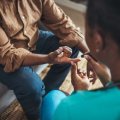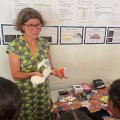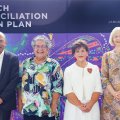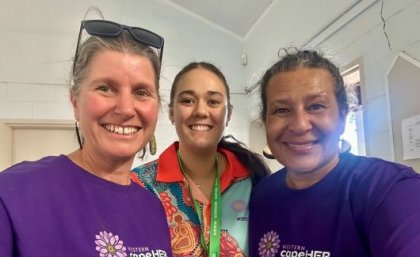
Health challenges experienced by women living in isolated parts of Far North Queensland have been brought into focus in an inaugural Indigenous-led event.
Hosted by The University of Queensland, Queensland Health, and Aboriginal-owned Embley Contracting, the Western CapeHER Women’s Health Forum took place in the Napranum community near Weipa, Cape York this week.
Local Indigenous woman and Adjunct Lecturer Minnie King, of UQ’s School of Public Health, who envisioned the event, said a postcode should not affect a woman’s health.
“This was a community-led, place-based forum, and our goal is to generate solutions together,” Ms King said.
“This has been a rare opportunity to make our voices count.”
Around 100 people attended the two-day event, including a strong representation of Aboriginal and Torres Strait Islander women from Weipa, Napranum, Aurukun and Mapoon communities, along with subject matter experts outside of Western Cape.
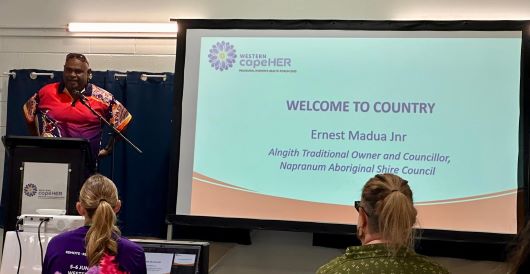 Led by local residents, the event empowered communities to take charge of their wellbeing, share health priorities, and spark a wider conversation about remote health and available services.
Led by local residents, the event empowered communities to take charge of their wellbeing, share health priorities, and spark a wider conversation about remote health and available services.
The forum was a chance for women of Western Cape to have their voices heard by health services, experts and decision makers, and spark change for better health and wellbeing.
Associate Professor Nina Lansbury, from UQ’s School of Public Health said the “whole arc of family creation” was one of the major discussions, including on birthing, parenting and pregnancy.
“Up until last year, you couldn’t actually birth in Weipa due to a 25-year absence of birthing services in the area,” she said.
“The birthing services available out of Weipa Hospital now is a major contrast to flying to Cairns or Townsville to give birth away from your support network.
“Now it’s about building the community’s trust in the local service and that takes time, because for so long women have been told it’s not safe to birth.
“There’s been a lovely discussion from the Palm Cockatoo Midwifery Group, and women responding this makes them feel safer, healthier and more trusting because they get to know their midwife better.’’ Sessions highlighted a range of women’s health issues in alignment with the Queensland Women and Girls’ Health Strategy 2032, including health rights, chronic conditions and sexual health.
Dr Lansbury said the event aims to deliver tangible outcomes and hopes it will serve as a model for other remote communities to replicate in the future.
“As a result of this we want to have outputs including a video summary and report collating health priorities and solutions straight from the voices of women here,” she said.
The event was also sponsored by the Community Controlled Health Service, Apunipima.
Image from left: Alngith Traditional Owner and Napranum Aboriginal Shire Councillor Ernest Madua opening the Western CapeHER Women’s Health Forum.
Media contact
Associate Professor Nina Lansbury
n.lansbury@uq.edu.au
UQ Communications
communications@uq.edu.au
+61 429 056 139
.jpg)




